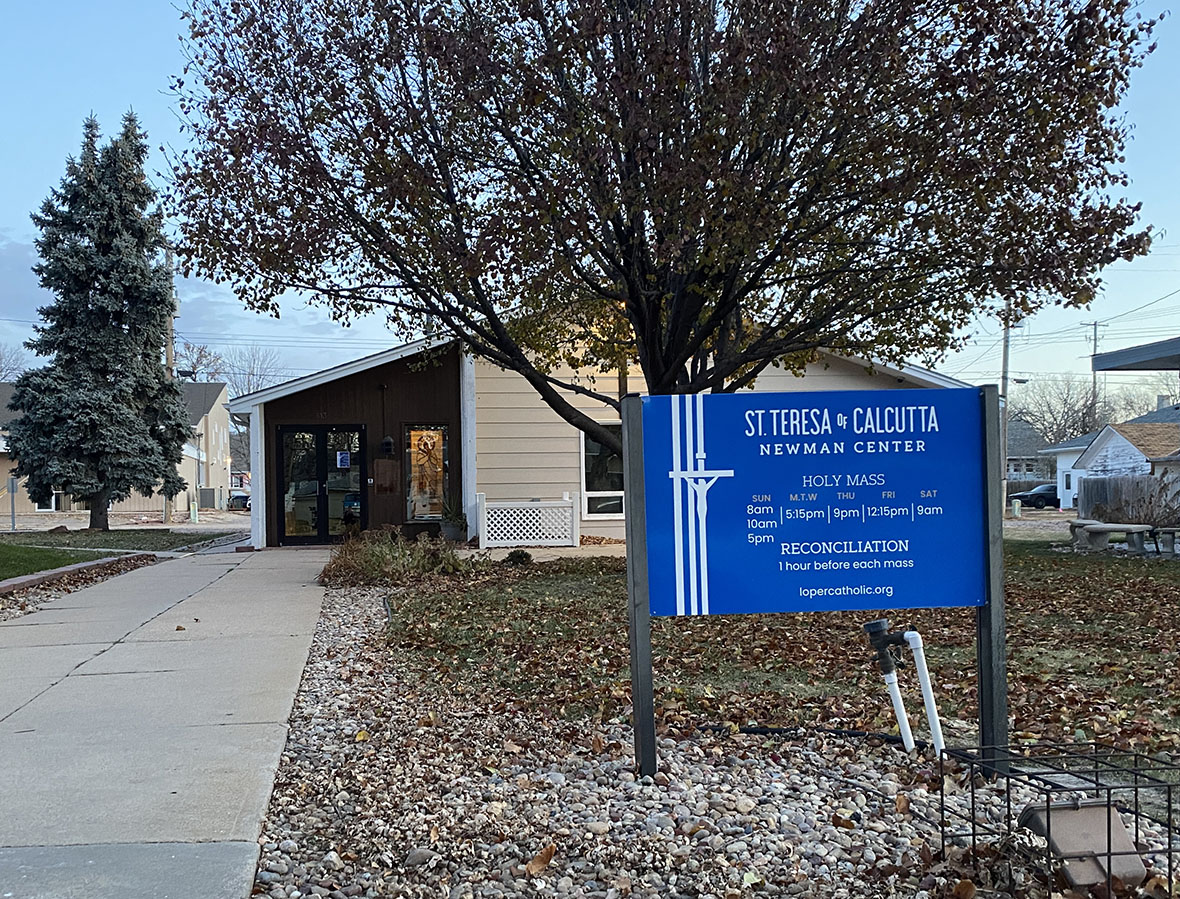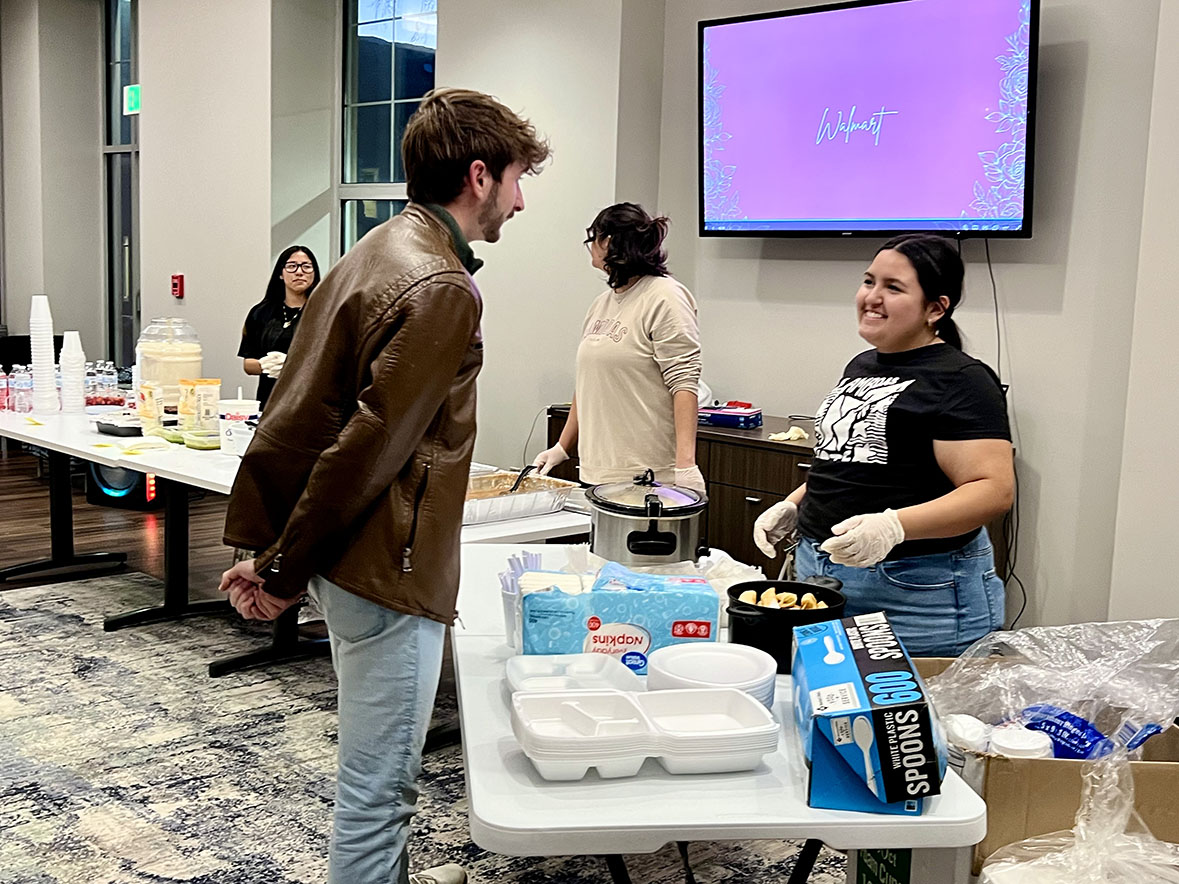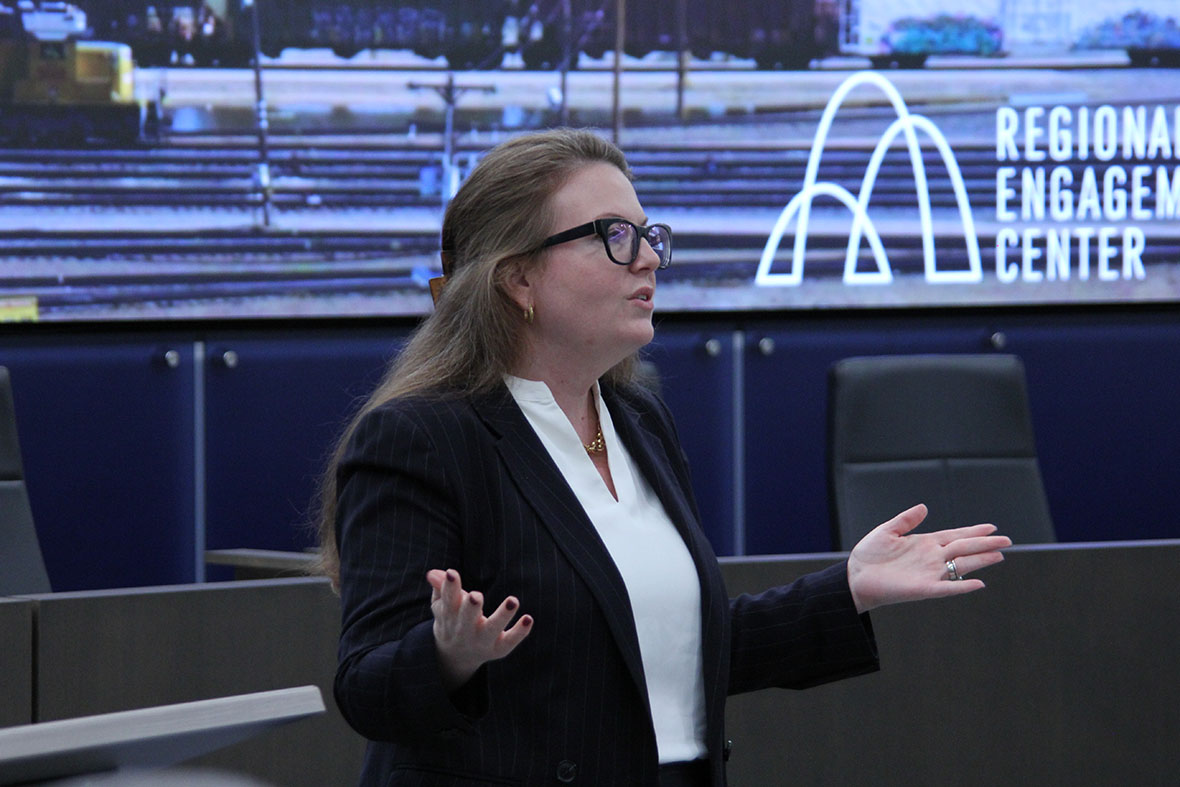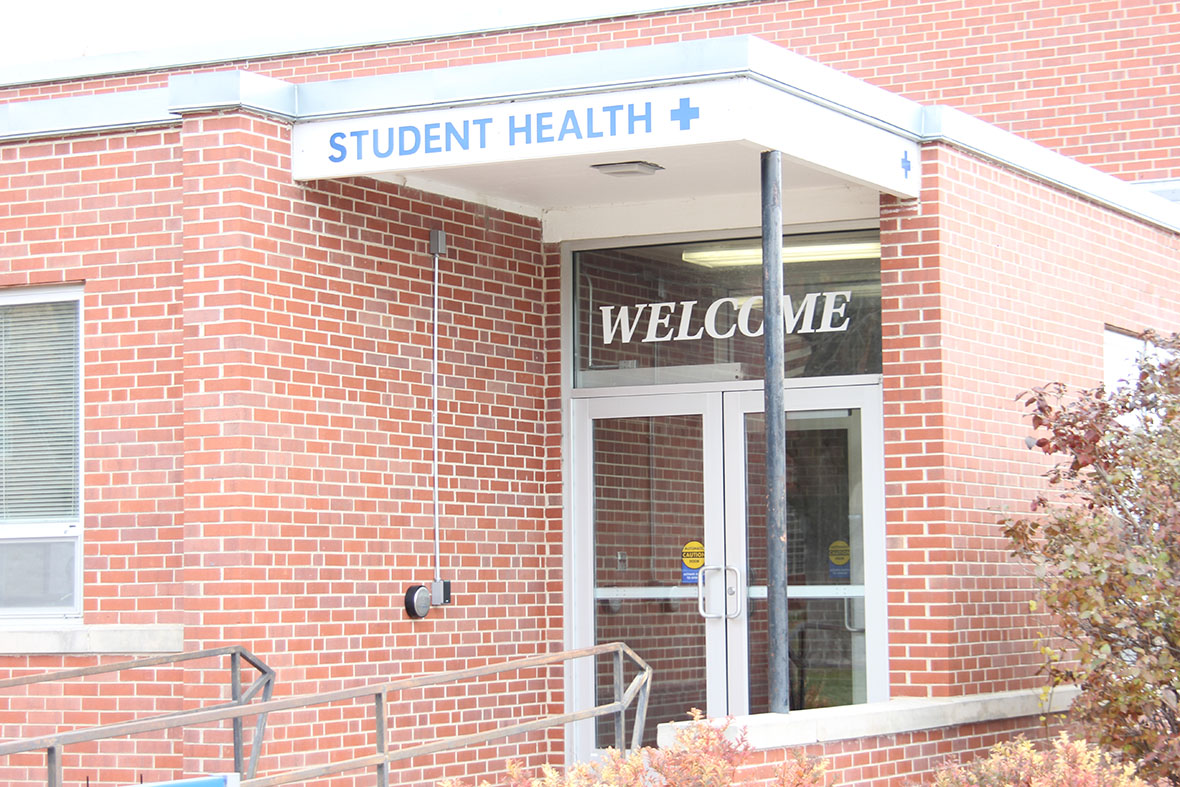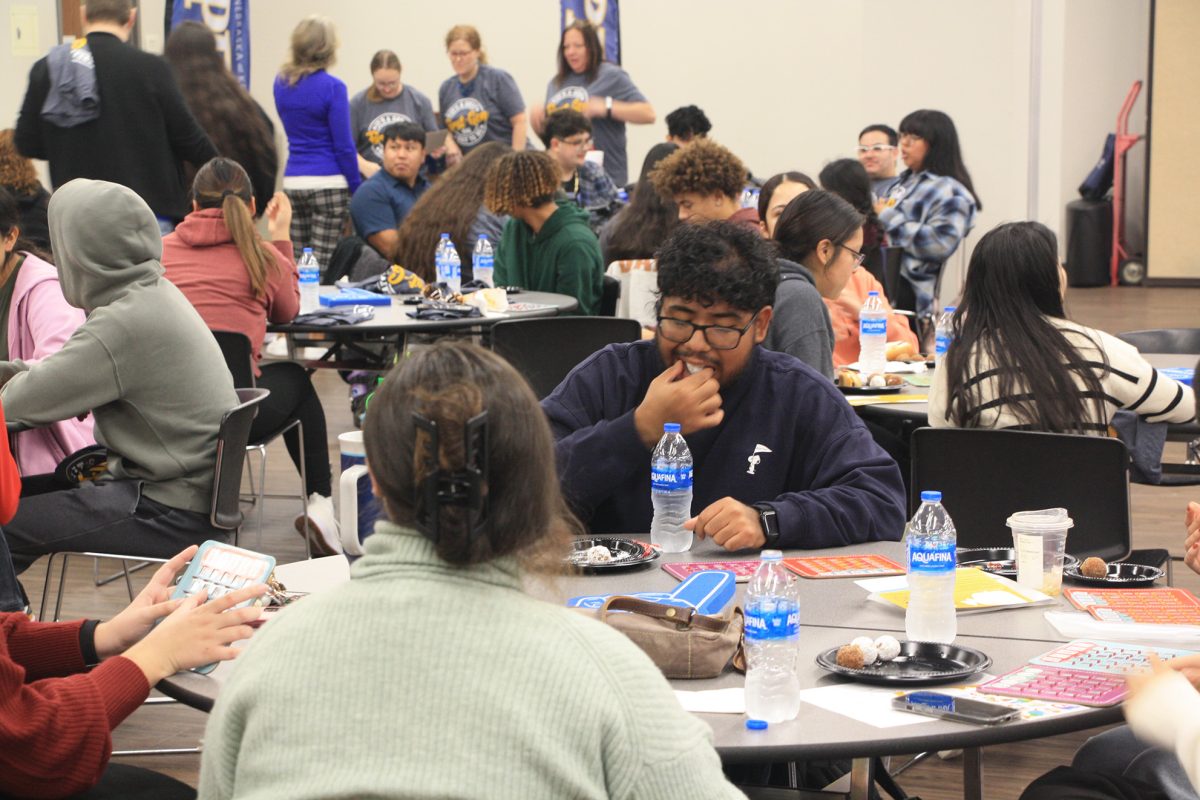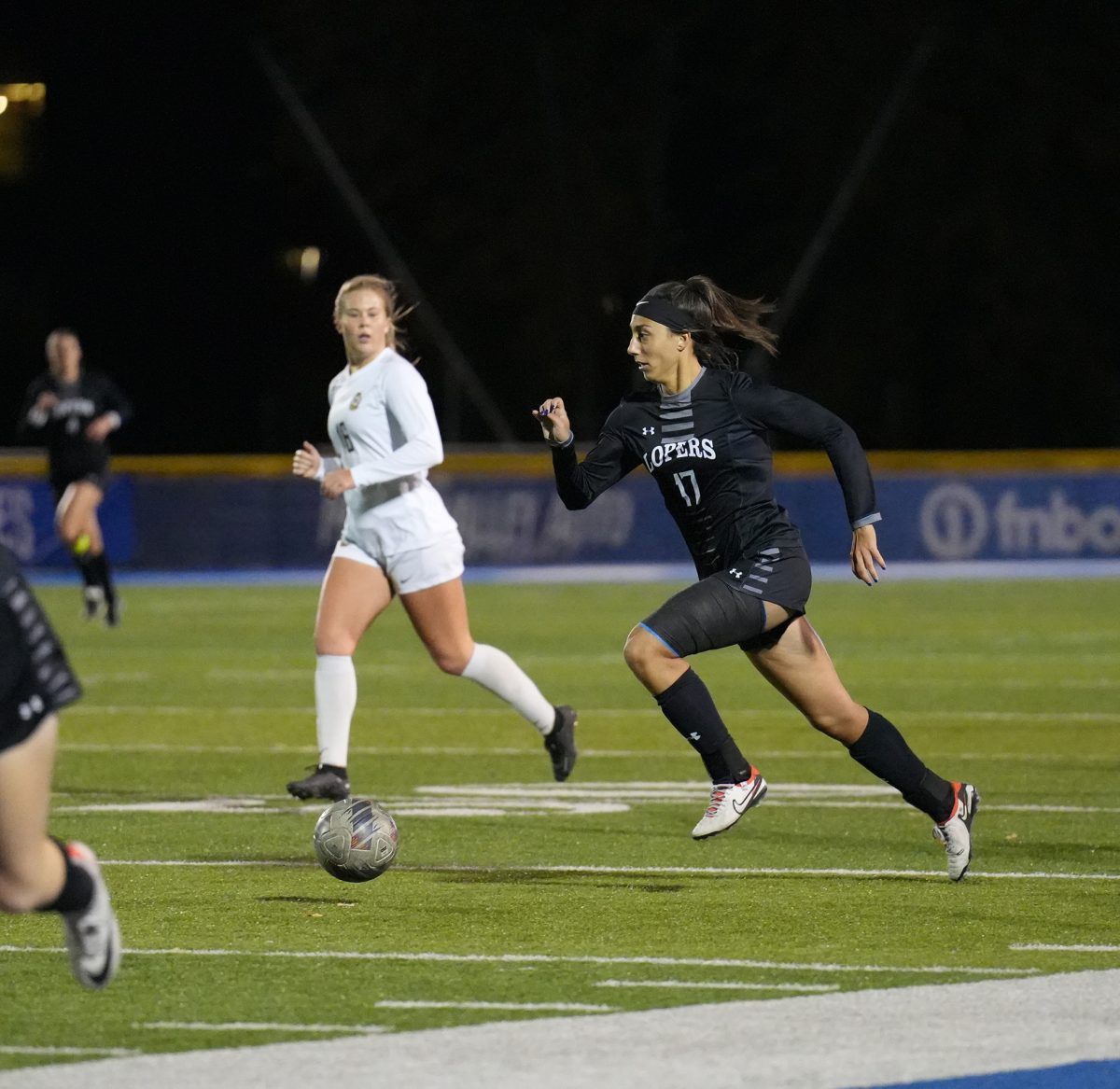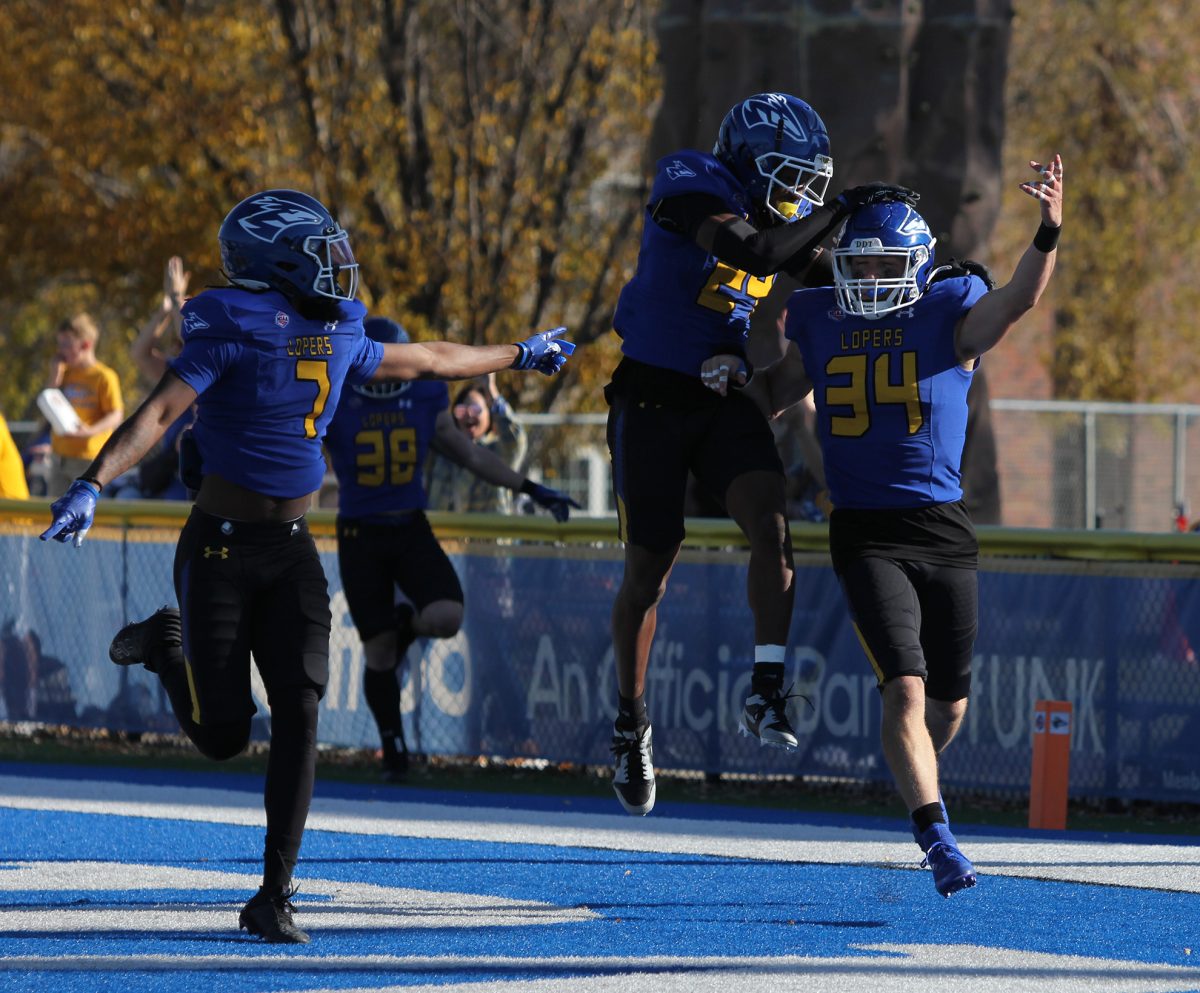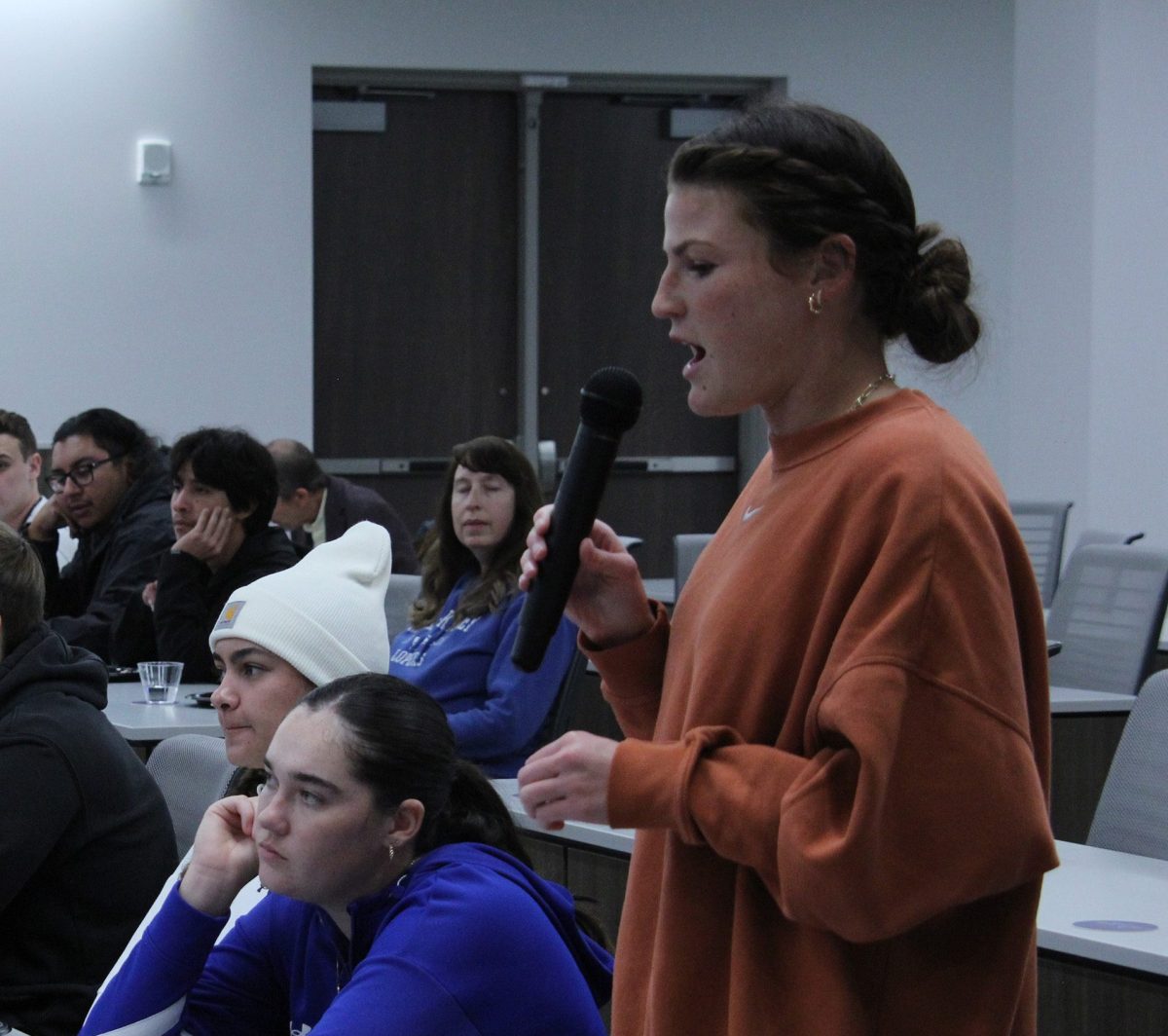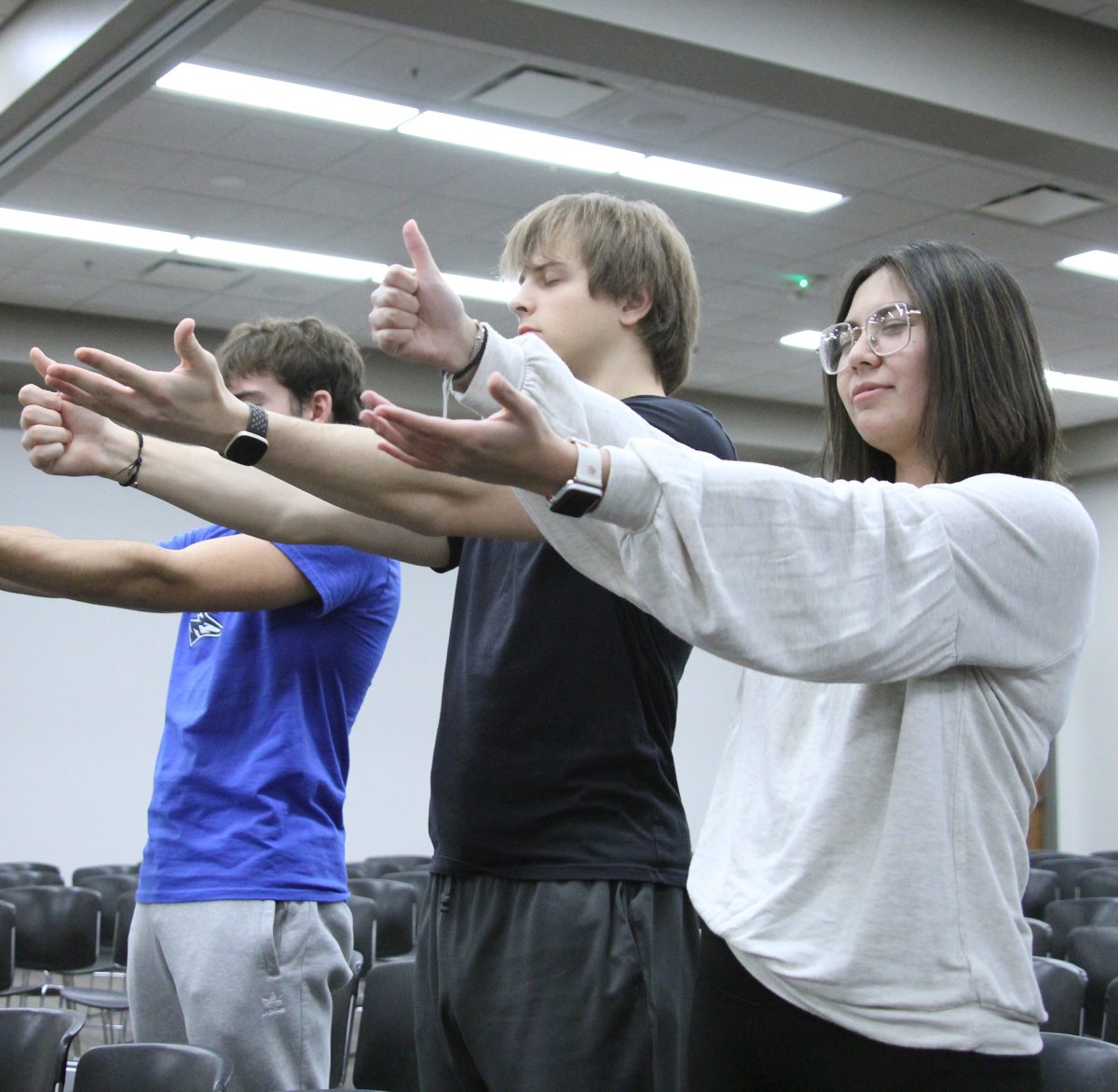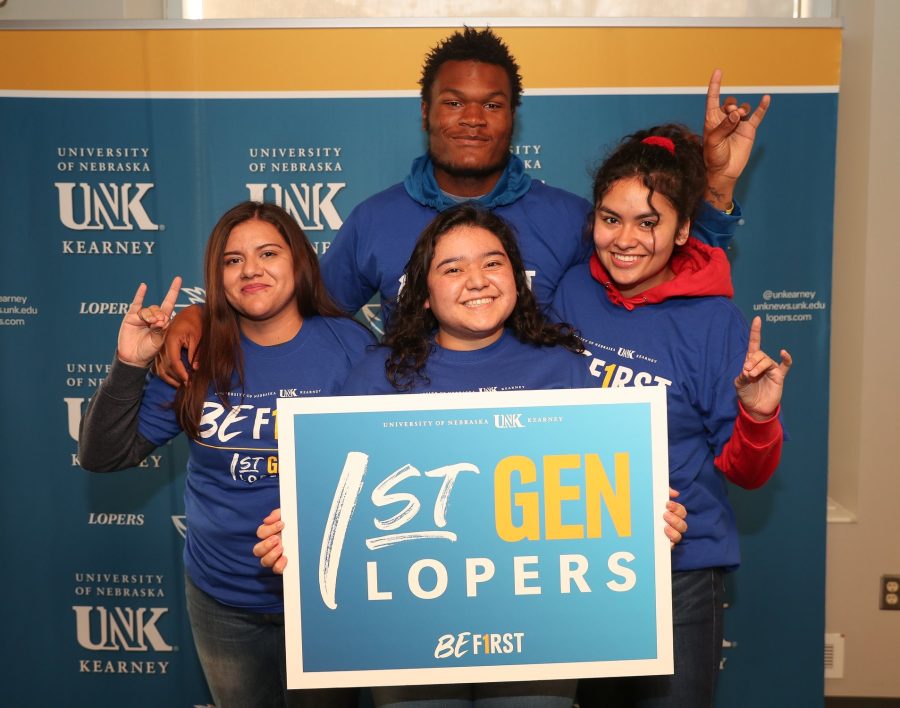MITCHELL LIERMAN
liermanm2@lopers.unk.edu
UNK first-generation students gathered in the Student Union food court on Friday to celebrate the legacy of the 1965 Higher Education Act and the community of first generation students around the country.
The 1965 legislation, which arose from Lyndon B. Johnson’s Great Society initiative, aimed “to strengthen the educational resources of our colleges and universities and to provide financial assistance for students in postsecondary and higher education.” College students from around the country have this legislation to thank for even being able to attend institutions of higher learning.
UNK boasts a strong community of first generation students. According to the UNK website’s First Gen page, two out of five undergraduate students on campus are the first in their family to attend college.
Students who attended the event received t-shirts, ice cream, and other treats. Many simply sat down to celebrate the community they share with their fellow first generation students, and to reflect on their experiences as students here.
“I am very grateful to be a first-generation student,” said Evelin Vasquez-Valtierra, a Freshman Computer Science major from Lexington. “I am honored that I can attend college at UNK, thus fulfilling my parents’ dreams.”
For Evelin, living up to her parents’ expectations is important.
“A challenge that I face as a first-generation student is the pressure that I must succeed,” Vasquez-Valtierra said. “Other students may drop out of college to pursue a different career, but my purpose at college is to graduate in my parents’ stead.”
Students shared multiple challenges of being a first generation student that come from their parents.
“There seems to be a disconnect between my parents and I since they do not really understand the logistics of college,” said Darian Wilson, a language arts education major from Alliance.
For many students, this disconnect can cause significant issues. In a 2016 study titled “Hunger on Campus,” researchers from the National Student Campaign Against Hunger and Homelessness in conjunction with the College and University Food Bank Alliance said that “More than half of all first-generation students (56%) were food insecure.”
This problem partially stems from the steep cost of housing associated with living on college campuses. While colleges and universities are able to offer substantial tuition aid to those who demonstrate need thanks to some of the programs established by the Higher Education Act, many do not provide as much aid for students housing needs. As a result, many first-generation students explore living-off campus, and, as a result, miss out on meal plans and on-campus food options.
“You can see people falling through the cracks when it comes to this stuff,” said sophomore theatre major Zach Petry of Dawson. “I have the luxury of having multiple scholarships that cover all of my college costs along with a well-paying job. Without these opportunities, I would have an immense amount of student debt. For students in the same situation as me, there’s a lot of potential for them to get lost in the shuffle.”

